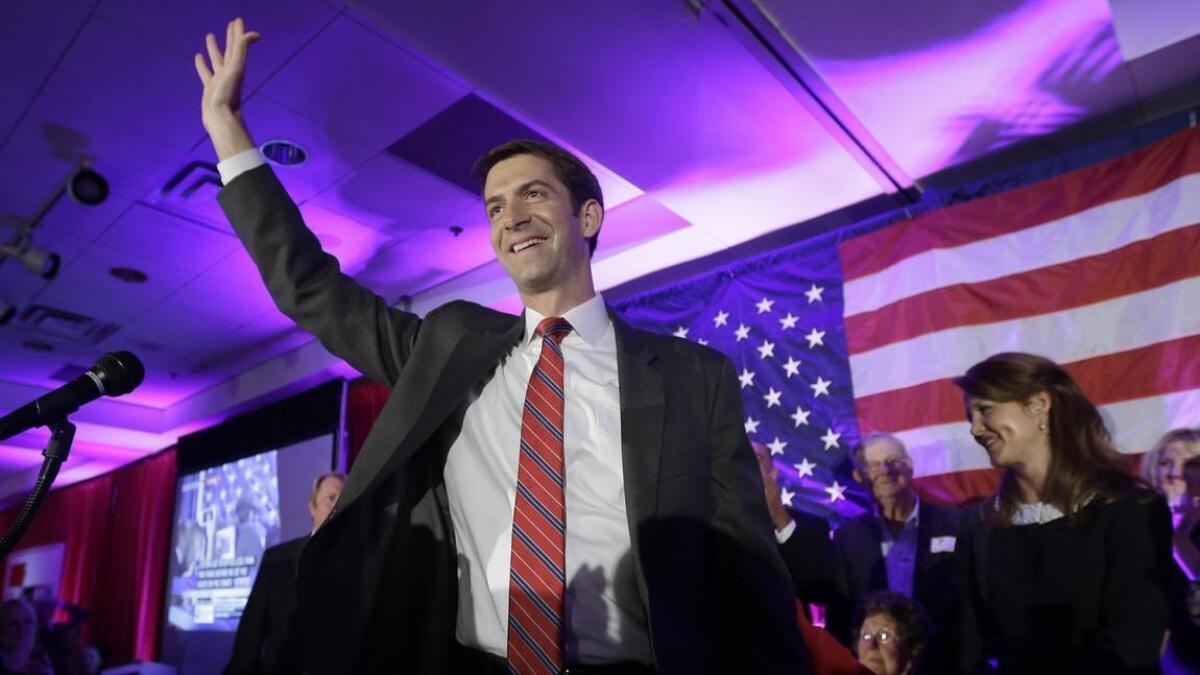Editorial: The future of gridlock

- Share via
For the third consecutive midterm election, voters went to the polls angry at Washington and worried that the country was heading in the wrong direction. The result: Republicans swept to control of the Senate, the third such shift in the House or Senate since 2006. The volatility is telling, and no one should miss the message. People want Washington to get things done, particularly on the economy. Unfortunately, gridlock is likely to continue unless lawmakers and the president decide that the next election isn’t as important as today’s problems.
Republicans turned the Senate races into referendums on the policies and competence of an unpopular president, taking seats in both right-leaning and swing states. But waging a proxy battle against a lame-duck president left the winners without a real mandate from the public to do anything. And even with the GOP holding both houses of Congress, power will remain divided between Republican lawmakers and a Democratic president who have shown little ability to work together.
Republicans will now be able to put a freeze on judicial appointments, eliminate a few provisions of the 2010 healthcare law and push through disputed trade agreements. But they wouldn’t be able to write (or repeal) laws without President Obama’s support, and he’s shown that even a government shutdown won’t persuade him to sign a bill he doesn’t like.
Granted, voters have sent mixed signals about what they want. Polls show growing support for elected officials willing to compromise, yet voters didn’t penalize Republicans for shutting down much of the federal government last year in a vain attempt to “defund Obamacare.” The public seems to expect the majority to govern, regardless of what the minority does. With Republicans taking the Senate, Democrats may have little interest in tamping down the voter anger that has led to these “change” elections.
But here’s another lesson from the last few years. Senate Democrats worked so hard to stop Republicans from forcing votes on hot-button issues that the “world’s greatest deliberative body” was transformed into the chamber that didn’t debate anything. Democrats are now facing the consequences. It would be naive to expect the election to end the polarization between the parties. Nevertheless, its results suggest that voters are tired of watching policymakers dig themselves more deeply into their ideological trenches. It’s past time for Congress and the White House to start looking for new ways to move forward.
Follow the Opinion section on Twitter @latimesopinion
More to Read
Sign up for Essential California
The most important California stories and recommendations in your inbox every morning.
You may occasionally receive promotional content from the Los Angeles Times.













